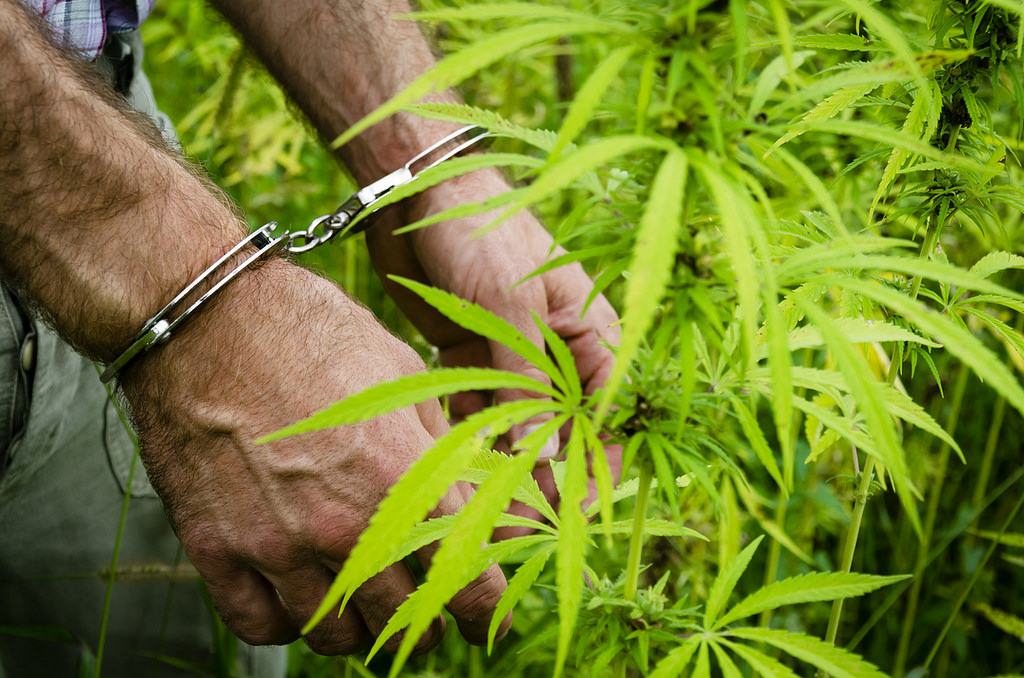The Drug Enforcement Administration (DEA) celebrated its 50th anniversary this week—marking a half century of enforcing criminalization laws that have failed to fulfill the mission to eradicate drugs at the same time that nearly half of the country has legalized marijuana and psychedelics reform is also booming.
Since its founding on July 1, 1973 through an executive order issued by President Richard Nixon, DEA’s budget has swelled and its workforce has expanded—but illicit drugs remain widely accessible across the U.S., with waves of new, even deadlier substances continually emerging under prohibition while others like cannabis have been increasingly legalized at the state level.
“Over the past 50 years, DEA has worked to keep American communities safe and healthy by preventing criminal drug networks and drug-related violence and deaths,” the agency, which replaced the former Bureau of Narcotics and Dangerous Drugs five decades ago, said in a press release about its anniversary.
Yet while the agency continues to make thousands of arrests every year, while destroying controlled substances and seizing assets along the way, the anniversary also serves as a reminder that the war on drugs has been one of the costliest and least successful campaigns to be waged by the federal government. Indeed, more than 100,000 Americans died from drug overdoses in 2021 alone—a record high.
And when it comes to drug trafficking, even major disruptions to international enterprises haven’t stymied the flow of the substances. The trends for each drug have simply fluctuated, as the U.S. Sentencing Commission (USSC) shows. From 2018 to 2022, the percent of heroin trafficking cases declined by 37.4 percent—but the percent of fentanyl cases skyrocketed 435.4 percent, for example.
Meanwhile, reform advocates have made massive strides in combating the drug warrior narrative and affecting change at the local and state levels, with 23 states now having legalized marijuana for adult use and two having ended prohibition on certain psychedelics.
Federal reform has lagged, comparatively, but DEA itself has now found itself in a position where it will have to reconcile the science on cannabis and reach a decision about whether to remove it from Schedule I of the Controlled Substances Act (CSA) under a directive issued by President Joe Biden last year.
DEA hasn’t been entirely obstinate amid the paradigm shift in public opinion and policy. It’s routinely increased production quotas for marijuana and psychedelics for research purposes as interest within the scientific community expands. And it also ended a long-standing monopoly on cannabis cultivation for research by approving additional manufacturers.
Meanwhile, the agency also lost legal control over hemp containing up to 0.3 percent THC following the passage of the 2018 Farm Bill, and it is now working to finalize rules on synthetic cannabinoids like delta-8 THC. DEA has also faced numerous lawsuits over everything from psilocybin scheduling to the way it processes Freedom of Information Act (FOIA) requests.
As Reason reported this week, DEA’s own museum is rife with subtle acknowledgements that the agency has failed to win the drug war. Last year, the museum even publicly recognized the fact that racially discriminatory drug laws are partly responsible for the agency’s own founding.
Many congressional lawmakers have sharply criticized the criminalization model for drugs—especially marijuana. Some Democrats have also introduced legislation to federally decriminalize all currently illici substances and shift to a public health-centered approach to addiction.
But in the interim, there’s no sign that Congress will do away with DEA anytime soon despite its critical—and increasingly widely acknowledged—shortcomings. The question is whether it will work to be a partner in science-based efforts to modernize federal drug policy or continue the 50-year-long game of prohibitionist Whac-A-Mole. (Full Story)

